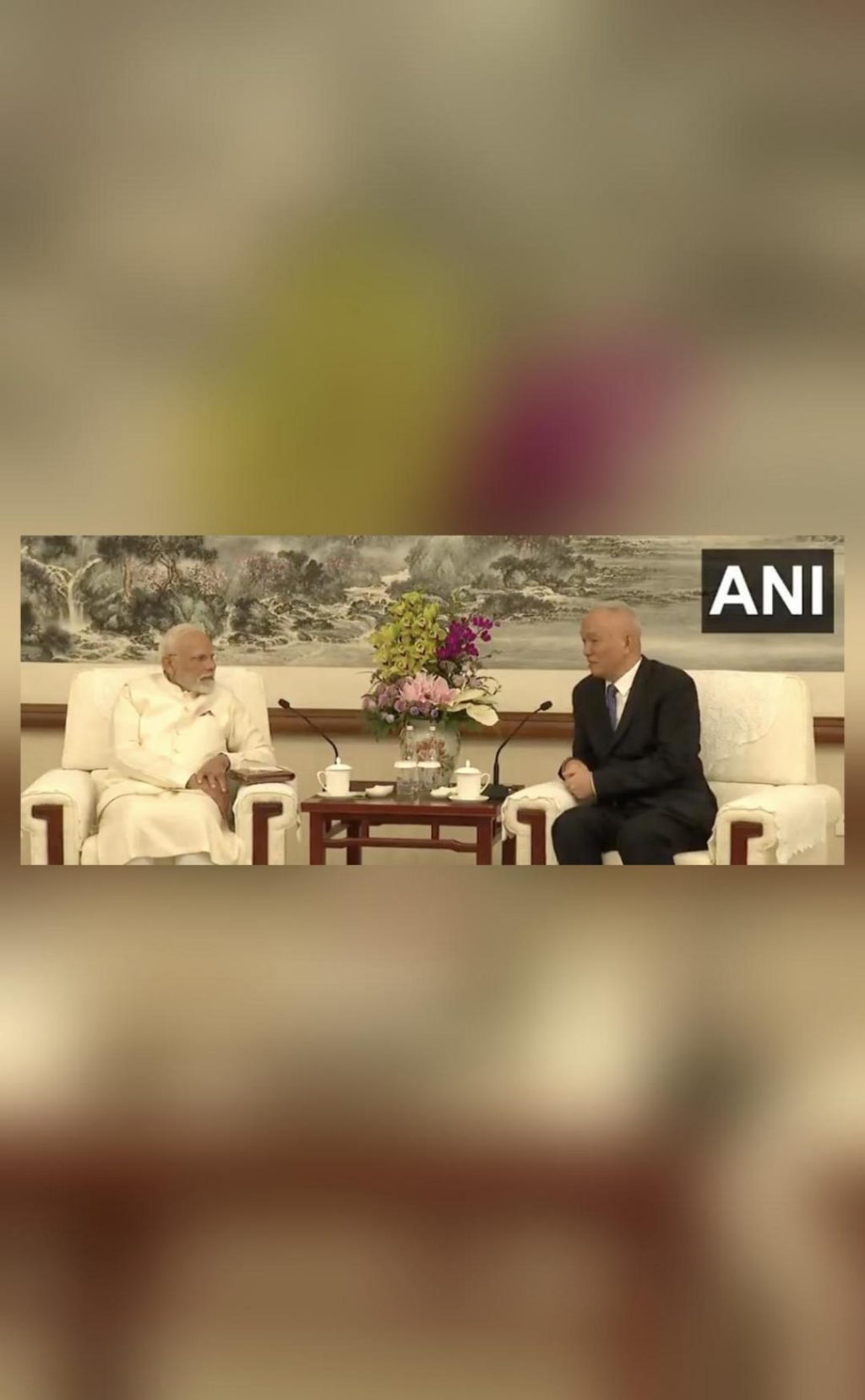
PM Modi holds meeting with Chinese Communist Party’s senior leader
Prime Minister Narendra Modi recently met with Cai Qi, a senior leader of the Chinese Communist Party, at the sidelines of the Shanghai Cooperation Organization (SCO) summit. This meeting came shortly after his interaction with Chinese President Xi Jinping, where both leaders emphasized the importance of advancing bilateral ties with mutual trust.
The meeting between PM Modi and Cai Qi is significant given the recent tensions between India and China along the Line of Actual Control (LAC). The two countries have been engaged in a standoff since May 2020, with both sides accusing each other of aggression. However, despite these tensions, PM Modi’s meeting with Cai Qi sends a positive signal about the desire to improve relations between the two nations.
Cai Qi is a high-ranking official in the Chinese Communist Party, serving as the Politburo Standing Committee member and Secretary of the Secretariat of the Chinese Communist Party. He is considered one of the most powerful leaders in China, and his meeting with PM Modi is a testament to the importance that Beijing attaches to its relationship with New Delhi.
The meeting between PM Modi and Cai Qi took place at the SCO summit, which was held in Samarkand, Uzbekistan. The SCO is a regional organization that aims to promote economic and security cooperation among its member states. The summit was attended by leaders from eight member states, including India and China.
During the meeting, PM Modi and Cai Qi reportedly discussed a range of issues, including trade, investment, and people-to-people exchanges. They also exchanged views on regional and global issues, such as terrorism, cybersecurity, and climate change.
The meeting comes at a time when India and China are trying to repair their damaged relations. In recent years, the two countries have been engaged in a series of diplomatic disputes, including the Doklam standoff in 2017 and the Galwan Valley clash in 2020. However, despite these tensions, both sides have been working to reduce the risk of conflict and improve communication.
In recent months, there have been several signs of improvement in India-China relations. In June, the two countries held talks on the border issue, which resulted in a breakthrough agreement to disengage troops from the Pangong Lake area. In July, India and China also held a meeting of their foreign ministers, where they discussed ways to strengthen bilateral ties.
The meeting between PM Modi and Cai Qi is a significant development in this context. It shows that both countries are willing to engage in dialogue and work towards improving their relations, despite their differences.
In a statement, the Indian government said that PM Modi and Cai Qi discussed ways to enhance cooperation between India and China, including in areas such as trade, investment, and people-to-people exchanges. The statement also mentioned that the two leaders exchanged views on regional and global issues, including terrorism, cybersecurity, and climate change.
The Chinese government also issued a statement on the meeting, saying that PM Modi and Cai Qi had a “candid and in-depth” exchange of views on bilateral ties and regional issues. The statement also mentioned that the two leaders agreed to promote cooperation between India and China in areas such as trade, investment, and people-to-people exchanges.
The meeting between PM Modi and Cai Qi is significant not just because of the high-profile nature of the leaders involved, but also because of the potential implications for India-China relations. As the two countries continue to navigate their complex relationship, this meeting sends a positive signal about the desire to improve ties and reduce tensions.
In conclusion, the meeting between PM Modi and Cai Qi is an important development in India-China relations. Despite the recent tensions between the two countries, this meeting shows that both sides are willing to engage in dialogue and work towards improving their relations. As the two countries continue to navigate their complex relationship, this meeting sends a positive signal about the potential for cooperation and peace.



